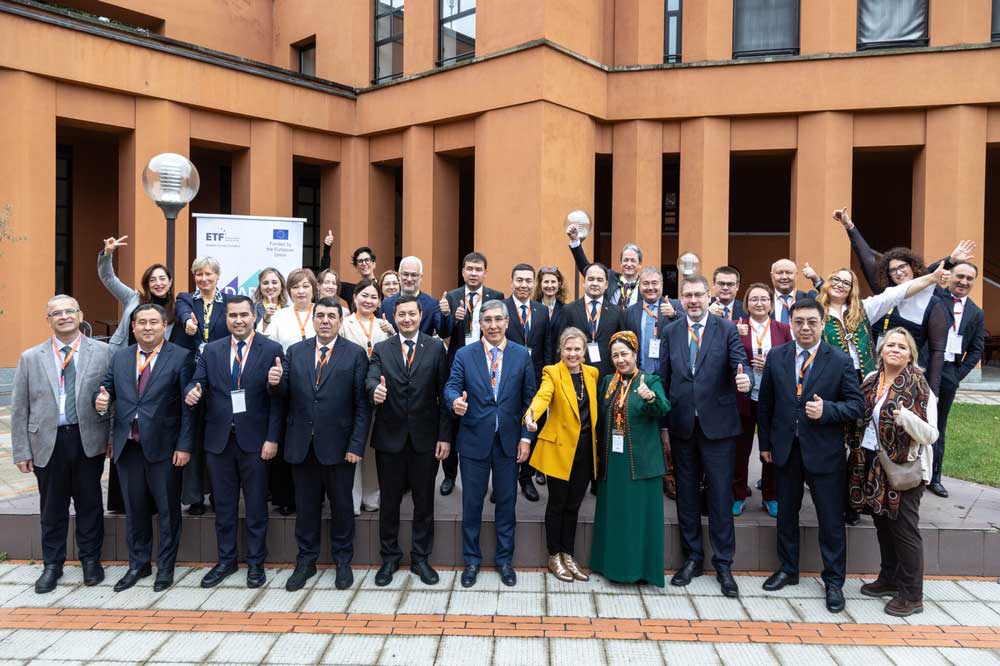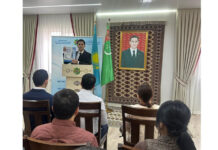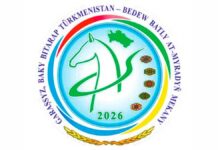Government officials, experts, and policymakers from Central Asia and the European Union gathered on Oct. 30-31 in Turin for the fourth high-level meeting of the EU-funded 10 million euro DARYA program, hosted by the European Training Foundation. The meeting brought together deputy ministers of education and labor from Kazakhstan, the Kyrgyz Republic, Turkmenistan, and Uzbekistan, as well as representatives from EU institutions, international organizations, and partners.
Launched in 2022, DARYA, which stands for Dialogue and Action for Resourceful Youth in Central Asia, is a five-year program aimed at supporting Central Asia in advancing employability and inclusive and sustainable skills development. Opening the event, ETF Director Pilvi Torsti reflected on the decades of the ETF’s work in the region, describing it as a “strong and trusted partnership.”
“Our cooperation is built on dialogue, evidence, and also shared ambition. It connected to our shared commitment to young people and the skills and competencies they really need today and for their future, that is the flagship of that partnership. It represents what we can achieve together when dialogue is structured, aspirations are really met, and the cooperation is continuous, so then the ideas can turn into results,” said Torsti.
As the program is halfway through, Torsti said it has delivered progress, reflected in stronger policy coordination and growing links between education systems and the labor market. However, she stressed that the work is just beginning.
“This policy dialogue is not an end in itself. It is a process that should help countries to move to design and then from design to implementation,” she added.
Moving forward, Torsti stressed three priorities. They include a regional skills roadmap aligned with national priorities, turning dialogue into action through joint projects and targeted investments, including via the EU Global Gateway, and embedding initiatives locally to ensure sustainability and lasting impact.
Addressing the meeting, EU Special Representative for Central Asia Eduards Stiprais explained why the DARYA project is meaningful to the EU and why the EU remains committed to supporting it.
“Firstly, the momentum for developing the relations between the European Union and the Central Asian countries has never been as significant as it is today. Our focus is on the economic development of the region, and a key part of this is attracting increased investments. However, to fully leverage these opportunities, we need a workforce that is both well-educated and highly skilled,” said Stiprais.
Reflecting on his experience working across Central Asia, Stiprais emphasized the region’s potential and the central role of education in unlocking it.
The Global Gateway, the EU’s flagship connectivity and investment strategy, underpins the DARYA project’s regional efforts. Originally set with an investment target of 300 billion euros for 2021-2027, the program has mobilized over 306 billion euros in just four years, reaching its goal ahead of schedule.









